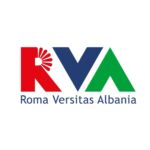Kick-Off Meeting
KICK-OFF MEETING: EDUCATION, EMPLOYMENT, PARTNERSHIP, AND GENDER EQUALITY: A WINNING FORMULA FOR ROMA IN VOCATIONAL EDUCATION AND TRAINING
The Project “Education, Employment, Partnerships and Gender Equality: A Winning Formula for Roma in VET” (abbreviated name: WinForVET) implemented by Roma Education Fund (REF), and Roma Versitas Albania (RVA) and Roma Versitas Kosovo (RVK) and funded by the Austrian Development Cooperation. The overall objective of the Project is to contribute to social inclusion and poverty reduction of Roma in Albania and Kosovo* through support of the vocational education and training, and facilitation to labor market. The Project focuses on strengthening professional skills of beneficiaries through provision of wide range of vocational trainings, paid professional internships, professional skills development, and cooperation and partnerships with employers. It includes scholarships, tutoring and mentoring support, as well as development of personalised career development plans, and trainings in soft skills. The project operates in seven cities in Albania, also on a regional level such as in Tirana, Elbasan, Fier, Berat, Korca, and Gjirokaster. Two age groups are in the focus of the project, youngsters of 14 to 18 years old, and adult youngsters from 18 to 28 years old. After the vocational education training, we seek to foster the employment of certified youngsters trained according to the project’s strategy.
We are at the brink at closing the first phase of applications, and we received more than 100 applicants that want to join the project. Likewise, in any other project or programs, the selection committee from REF and RVA will evaluate and select for support fifteen (50) young Roma. The project is 32 months, and it will have two other phases of recruitment to achieve the total number of 150 beneficiaries that will receive direct support from the project.
Lastly, there are two challenges identified so far by the project implementers. First, a considerable number of applications come from low education level; there are even tens of them that did not finish elementary education. However, they do not lack willingness or skills which are not certified and consolidated.
Second, there is a massive gap between Roma boys and girls in terms of inclusion. Romani girls face twice time discrimination and exclusion to benefit from education opportunities be it from public or organisation’s project. Due to patriarchal practices, early marriages, and the deprived role of girls and women in society, the approach toward education is restricted. Through the project, we aim to contribute to reducing such regressive phenomenon, at least at the targeted areas and offer more space and agency to girls in education and employment.


